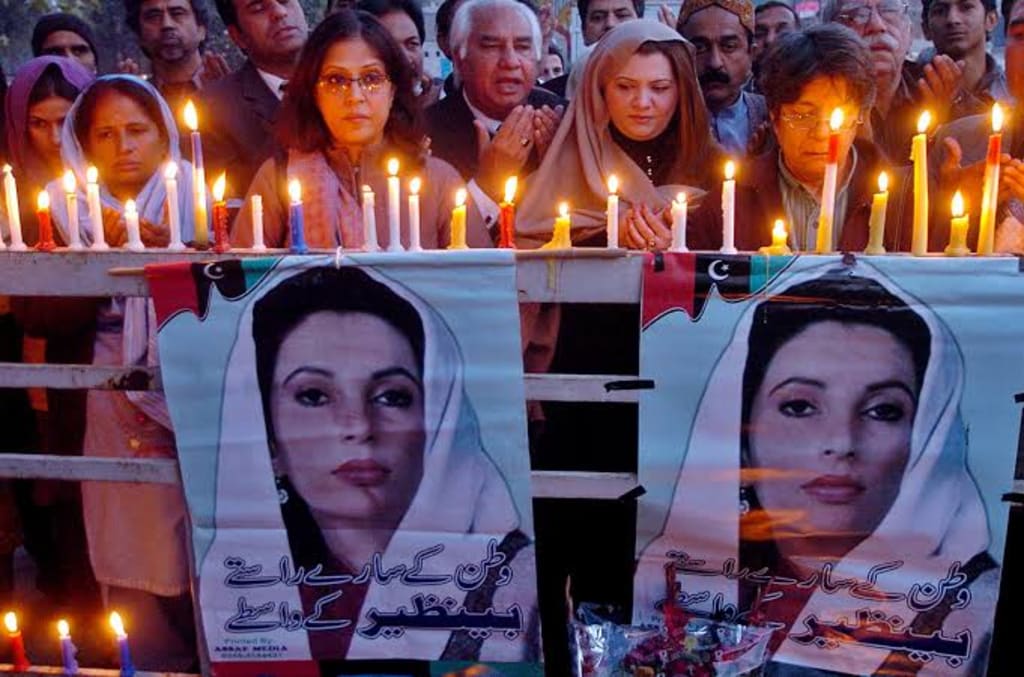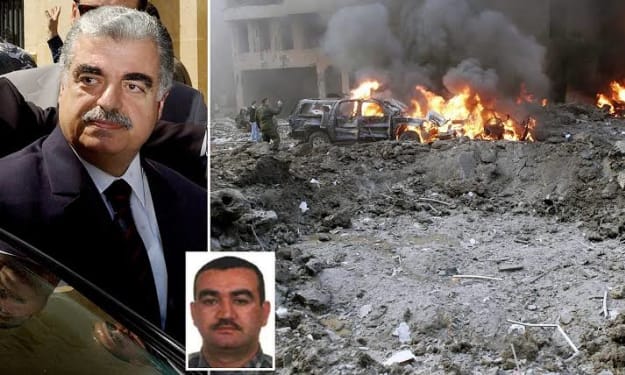The Dark Day: Bhutto's Assassination
Benazir Bhutto, Pakistan's first female Prime Minister, overcame political challenges and personal tragedies to champion democracy and women's empowerment.

Benazir Bhutto, a name synonymous with resilience, leadership, and tragedy, was a prominent political figure and the first woman to lead a Muslim-majority country as the Prime Minister of Pakistan. Her legacy is a complex tapestry of political achievements, personal triumphs, and the unfortunate circumstances that led to her untimely demise.
Born on June 21, 1953, into a politically influential family, Benazir Bhutto was exposed to the dynamics of power and diplomacy from an early age. Her father, Zulfikar Ali Bhutto, was a former Prime Minister of Pakistan, and this familial background heavily influenced her trajectory in politics. Benazir was educated at Harvard and Oxford, where she honed her intellect and developed a keen understanding of international affairs.
Returning to Pakistan in the late 1970s, Bhutto witnessed her father's arrest and subsequent execution following a military coup. These events fueled her determination to fight for democracy and justice in a nation marked by political turbulence. In 1988, Benazir Bhutto's perseverance paid off as she became the Prime Minister of Pakistan, a historic achievement that shattered gender barriers and inspired women across the world.
During her tenure as Prime Minister, Bhutto implemented a range of progressive policies, including educational reforms, healthcare improvements, and efforts to alleviate poverty. However, her time in office was marred by allegations of corruption and mismanagement. Despite these challenges, she remained steadfast in her commitment to steering Pakistan towards a more democratic and progressive path.
Tragically, Bhutto's life was marked by personal loss and danger. In 1996, her younger brother Murtaza Bhutto was killed in a controversial police encounter. Benazir herself faced multiple assassination attempts, which underscored the volatility of Pakistani politics. However, it was the events of December 27, 2007, that shook the world and cast a somber shadow over her legacy.
On that fateful day, as Bhutto was leaving a political rally in Rawalpindi, she was assassinated in a suicide bombing attack. The blast claimed not only her life but also the lives of many of her supporters. The incident sent shockwaves through Pakistan and the global community, highlighting the dangerous undercurrents of extremism that plagued the region.
Benazir Bhutto's death left a void in Pakistani politics and a profound impact on the country's trajectory. Her assassination marked a turning point in Pakistan's struggle against terrorism and extremism, prompting widespread condemnation and calls for justice. Investigations into her death were complex, marred by political interference and lack of transparency.
Bhutto's legacy, however, lives on. She remains an enduring symbol of resilience, determination, and female empowerment. Her contributions to Pakistani politics and society continue to inspire women to take on leadership roles and advocate for change. In 2008, her Pakistan People's Party (PPP) emerged as a powerful political force in the aftermath of her death, further demonstrating the lasting impact of her influence.
Beyond Pakistan's borders, Benazir Bhutto's life story serves as a cautionary tale about the dangers of political instability and the global threat of terrorism. Her commitment to democracy and her courage in the face of adversity have left an indelible mark on history, reminding the world of the importance of safeguarding the principles of justice and equality.
In conclusion, Benazir Bhutto's journey from a privileged upbringing to becoming a symbol of hope for millions is a tale of ambition, resilience, and tragedy. Her legacy is one of political accomplishments, social progress, and the heart-wrenching events that ultimately led to her demise. As Pakistan and the world continue to grapple with the complex issues she faced, her memory remains a beacon of hope and a reminder of the ongoing struggle for democracy and justice.





Comments
There are no comments for this story
Be the first to respond and start the conversation.